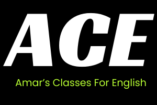PAPER-III : ENGLISH LANGUAGE.
Directions (51-53): In the following questions, some parts of the sentences have errors and some have none. Find out which part of a sentence has an error. The number of that part is your answer. If there is no error, then your answer is (D) i.e. No error.
51. Due to the heavy rains (A)/ the ship drowned (B)/ in the middle of the ocean. (C)/ No error (D)
52. Death of (A)/ his only son (B)/ made Mohan desolate. (C)/ No error (D)
53. In his old age, (A)/ a person is likely to get (B) / more weak day by day. (C)/ No error (D)
Directions (54-57): In the following questions, sentences are given with blanks to be filled in with an appropriate word(s). Four alternatives are suggested for each question. Choose the correct alternative out of the four and indicate it as your answer.
54. Our teacher_____several points before the exams.
(A) cleared off
(B) cleared away
(C) cleared up
(D) cleared out
55. Let me give you___
(A) an advise
(B) any advice
(C) some advice
(D) some advises
56. The cart was driven___bullocks.
(A) with
(B) off
(C) to
(D) by
57. Simon__ _very polite at the moment, because he wants make a good impression.
(A) was being
(C) is behaving
(B) has been
(B) is being.
Directions (58-59): In the following questions, out of the four alternatives, choose the one which best expresses the meaning of the given word.
58. restrict
(A) curtail
(B) prohibit
(C) retain
(D) retail
59. tremendous
(A) awesome
(B) remarkable
(C) considerable
(D) excessive
Directions (60-61): In the following questions, the word opposite in meaning to the given word.
60. praise
(A) heckle
(B) accuse
(C) hate
(D) scold
61. terminate
(A) hasten
(B) depart
(C) begin
(D) change
Directions (62-63): In the following questions, four alternatives are given for the idiom/phrase printed in the sentence. Choose the alternative which best expresses the meaning of the idiom/ phrase.
62. The actress took cue from her brother and became successful.
(A) some help
(B) a hint
(C) some money
(D) learnt acting
63. Let us have a heart to heart talk to solve this problem.
(A) good talk
(B) emotional talk
(D) loving talk
(C) frank talk
Directions (64-66): In the following questions, a part of the sentence is printed in bold. Below are given alternatives to the bold part at (A), (B) and (C) which may improve the sentence. Choose the correct alternative. In case no improvement is needed your answer is (D).
64.Them shoes are mine.
(A) Those
(B) That
(C) Their
(D) No improvement
65.He is addicted to alcohol and exerts a bad influence for family.
(A) on
(B) in
(C) about
(D) No improvement
66. Kalidasa is the Shakespeare of India.
(A) Shakespeare
(B) a Shakespeare
(C) like Shakespeare
(D) No improvement
Directions (67-68): In the following questions, out of the four alternatives, choose the one which can be substituted for the given words/sentence.
67.Member of a tribe that wanders from place to place with fixed home
(A) Vagabond
(B) Nomad
(C) Wanderer
(D) Truant
68. An animal or plant living in or upon another
(A) master
(B) dependant
(C) insect
(D) parasite
Directions (69-70): In the following questions, groups of four words are given. In each group, one word is correctly spelt. Find the correctly spelt word.
69. (A) Mischeivous
(B) Mischevous
(D) Mischivous
(C) Mischievous
70. (A) Defenitly
(B) Definately
(C) Definitely
(D) Defenitely
Directions (71-75): In the following passage, some of the words have been left out. First read the passage over and try understand what it is about. Then fill in the blanks with the help of the alternatives given.
Twenty million years ago, our immediate ancestors probably still lived in the trees. After we came …(71)… from the trees, we evolved an upright …(72)… our hands were more useful, being…(73)…. We possessed agility and an excellent binocular…(74)…. We had, in course of time, …(75)… many of the preconditions required for making.
71. (A) across
(B) under
(C) into
(D) down
72. (A) posture
(B) position
(C) pose
(D) posterior
73. (A) free
(B) tight
(C) loose
(D) lazy
74. (A) vision
(B) skill
(C) tools
(D) ability
75. (A) lost
(B) acquired
(C) demanded
(D) forgotten


